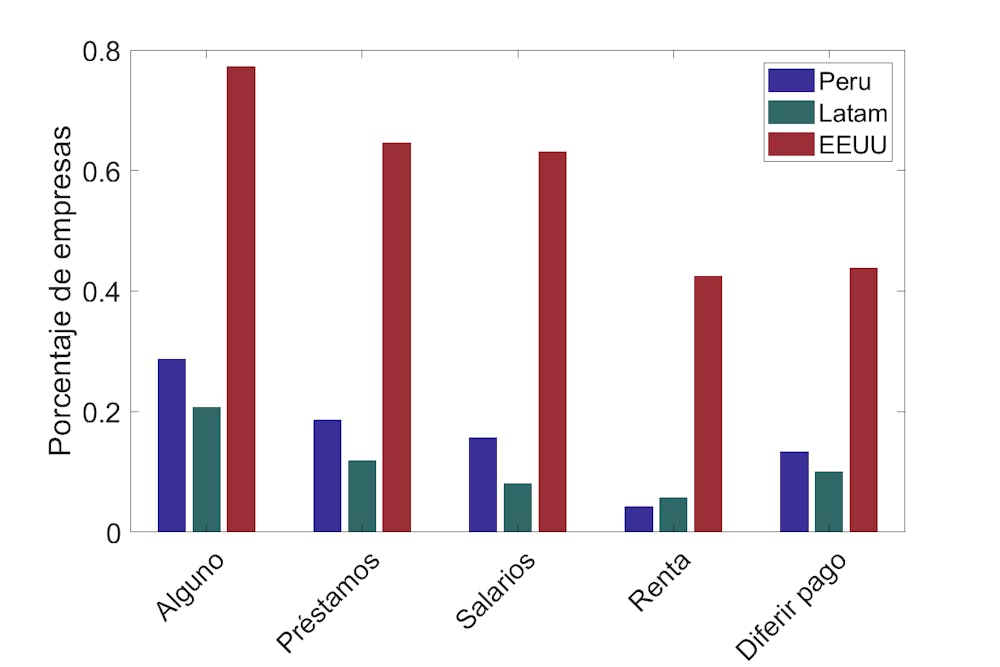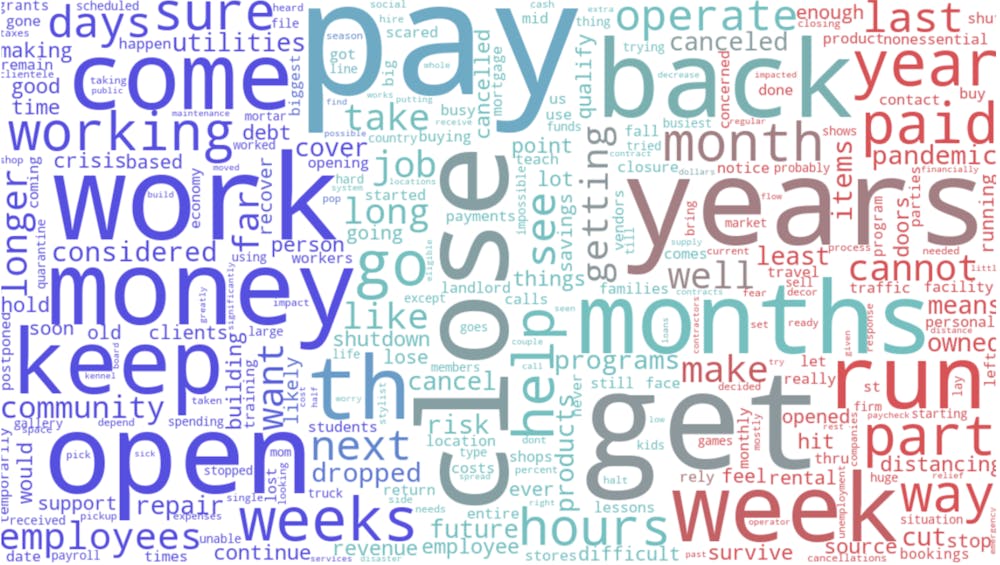Peru has launched a COVID-19 economic relief package in Latin America, easing tax burdens, subsidizing wages, and guaranteeing nearly $90M in funds for small business loans. But according to a recent University-affiliated survey, over 70 percent of small business owners have no idea.
Assistant Professor of Economics and Public Affairs Christopher Neilson partnered with economists from Yale and the University of Oxford and analysts throughout the Western Hemisphere to help small businesses deal with the pandemic. The COVID-19 International Small Business Study surveys the perceptions of small business owners to governmental policies and increases awareness of the aid available to small companies.
“Small businesses don’t know what the government is doing, and we want to pass the information along as efficiently as possible,” said Alvaro Carril GS, an economics Ph.D. student assisting with the project.
The project monitors relief policies relevant to small businesses across the United States, Latin America, and the Caribbean. With data on more than 50,000 business owners, the project has tracked small businesses’ expectations for recovery and their suggestions for government assistance.
Although relief programs are available for free, acquiring information about them can be time-consuming and costly. The United States included $350B of aid for small businesses in the Coronavirus Aid, Relief, and Economic Security (CARES) Act. But according to Neilson, “this huge amount of money is dropped on small businesses, and it’s not making a dent.”
The group’s U.S.-based survey, published on April 26, found that America’s smallest businesses were the least aware compared to bigger businesses of government assistance programs after the passage of the CARES Act. By the time many owners requested aid, the funds had run out.
“At the beginning of the United States’ relief program, bigger businesses got the funding because they knew how to do it and received information in a quicker way,” said Alejandrina Correa, a project manager at ConsiliumBots, a research organization based out of Chile assisting with the project.

A graph showing that the smallest U.S. businesses surveyed (0 to 4 employees in January) had the least awareness of government assistance programs.
Graphic courtesy of the COVID-19 International Small Business Study
Additionally, 60 percent of surveyed businesses had laid off at least one worker after the CARES Act was passed, despite government officials promising that aid would be coming.
“If your small firm has placed family savings into the firm, but the government is asking you not to fire people or to close things down, then it's hard to have this level of uncertainty,” Neilson said.
As the United States was slow in sending information to small businesses, the team’s research showed that governments in Latin America struggled even more. Seventy-seven percent of those surveyed in the United States were aware of some form of government assistance available. In Latin America, that number dropped to 21 percent.
Although the team referred to Peru’s response as an “ambitious” plan, only 29 percent of small business respondents were aware of the programs designed to assist them. Less than 20 percent of respondents knew about loan programs designed to subsidize wages, income, or rent.

“I cannot make my mortgage payments and personal expenses, [and] the future is uncertain since I don’t receive any of the benefits the Peruvian government has given to help the population,” one small business owner in Peru noted, according to a translated testimonial.

The percentage of surveyed employers in Peru, Latin America (Latam), and the U.S. (EEUU) who were aware of some program (Alguno) or specific programs that provide loans (Préstamos) or help with salaries (Salarios), income (Renta), or allow for rent, mortgage or loan payments to be deferred (Deferir pago).
Graphic courtesy of the COVID-19 International Small Business Study
In addition to gathering information on how small businesses have been impacted and how different government policies are perceived, the research team also seeks to determine ways to best increase awareness and disseminate information about relief programs by meeting with small businesses directly and surveying them over time.
“We set up a randomized control trial and reached out to firms from an office in Peru to give small businesses information about the different programs available,” Neilson said.
In doing so, Neilson and his team are not only able to get information about programs available in Latin America out to small businesses directly, but can also do so in an experimental format, yielding policy recommendations.
Since the project focuses on one-one-relationships and not a representative sample of any country, the team of 24 hopes to measure the efficacy of its communication to individual small businesses and determine which methods of communication yield the best outcomes.
Neilson said they plan to scale up these randomized trials to neighboring countries around Peru, and the principal investigators plan to continue forwarding policy suggestions to finance ministers and media organizations in the targeted countries.








